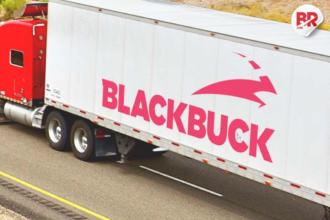
Tata Motors shares rose 1% to ₹727 on May 26, after US President Donald Trump postponed the 50% import tariff on EU goods to July 9. The delay is crucial for Tata’s UK-based unit, Jaguar Land Rover (JLR), which relies on the US—its second-largest export market—for around 20% of its global sales.
For starters, it’s a sigh of relief. JLR had already paused shipments to the US last month when Trump announced a 25% auto tariff.

That hit confidence, both in markets and management. But now, with the delay in the harsher 50% tariffs and a partial waiver in place, JLR is back in the game—literally resuming exports and rebuilding momentum.
Tata Motors isn’t just surviving this trade war drama—it’s performing. In Q4 FY25, JLR clocked ₹7.7 billion in revenue, with an impressive 15.3% EBITDA margin.
Also Read Why Indian Shares Just Got a ₹2.69 Trillion Shock—and Investors Are Loving It
That’s not a fluke—it’s the 10th straight profitable quarter for the luxury unit. What’s better? The brand hit its positive cash flow goal for FY25 and plans to invest ₹18 billion over the next five years—all from internal funds.
Let’s be honest—this isn’t just about tariffs. It’s about resilience. Tata Motors, the parent company, recently turned debt-free in its core automotive business.
That’s a big deal. It also reported its highest-ever revenue and profit before tax, signaling more than just a short-term spike. It’s a transformation.
Now, rewind to April. When Trump first rattled the auto world with his tariff threats, it looked like another unpredictable hit to global automakers. But JLR didn’t panic. It paused. It adjusted. And now it’s bouncing back stronger. Investors, who saw Tata Motors dip 4% this year, have watched the stock rally 21% from April lows.
The road ahead is still uncertain—global politics always keeps the auto industry on edge—but Tata Motors is clearly shifting gears.
With JLR stable and future-ready, and parent Tata Motors cleaning up its balance sheet, the company is cruising toward a stronger FY26.
Investor day is set for June 16, when JLR will share more on how it plans to navigate ongoing global challenges. Until then, this delay in US tariffs feels less like a timeout—and more like a green light.
Also Read Why the EU Tariff Threat Just Took a Wild U-Turn — And What Happens Next












